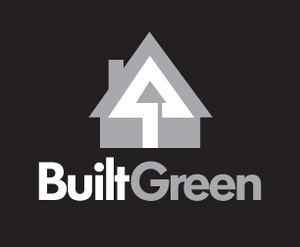|
The Canadian Federal Budget 2024, titled “Fairness for Every Generation,” has been hailed for its housing-focused initiatives, with the Canadian Home Builders’ Association (CHBA), receiving accolades for its advocacy role in shaping these policies. While the budget does address critical issues such as housing affordability and supply, a closer examination reveals certain shortcomings and areas for improvement.
1. Increase in Capital Gains for Corporations
While this may well get more taxes from the “haves”, the unintended consequence will adversely affect one of the most important groups of people in this country, Doctors. In a time when many families are struggling to get a doctor, taxing doctors further doesn’t seem like a wise choice especially considering our neighbors to the south will happily pay them more and tax them less.
2. $53 Billion in New Spending Plans
Spending money to fight inflation? I’ll leave it to you to decide if that seems like a smart idea. Given our country is currently making interest payments of over $46 billion per year, perhaps reigning things in and reducing our deficit is a more prudent approach.
3. Building 3.9 MILLION Homes by 2031
According to StatsCan, since 2000, our industry has started to build, on average, 208,939 housing units per year. The most housing units starts in a single year was from 2022 at 271,198 housing units. 3.9 million / 7 years = 557,143 housing units per year. That’s more than double the average. We don’t have the infrastructure nor the skilled labour to produce homes at this pace. An additional 3.9 million homes will need power, water, and sewer connections. BC Hydro is already tapped out, our water reservoirs have not been increased in decades, and our ability to construct sewer treatment plants is….. Shall we say challenged?
The math isn’t mathing. Some insight from industry: I am a part of the Government Relations Committee for HAVAN and I can tell you developers are starting to throw their hands up in the air.
Approval timelines for zoning and developments are still years long. The certainty of a development project being approved is non-existent. And, to add insult to injury holding costs, Development Cost Charges (DCC’s) being demanded by local municipalities have gone up egregiously over the past 2 years (for example, Langley DCC’s have gone up between 46% and 81% depending on the home type). AND, those fee increases are usually announced AFTER a developer has purchased the land. Developers are not the bad guys if we want more homes and they don’t build homes to break even.
Again, we don’t have the skilled trades to achieve this 3.9M housing goal. And if we have to bring in even more people through immigration, where are they going to live?
4. 30-year Amortizations for First-Time Buyers
Extending amortization periods for first-time homebuyers purchasing new builds can enhance affordability. While this measure aids new home purchases, it may not address affordability for existing homes, potentially creating a market distortion favoring new builds. It also doesn’t help folks who purchased apartments and looking to upsize as their families grow.
5. Industrial Strategy & Supporting Innovative Housing Technologies
Developing a strategy for innovative housing technologies is crucial for improving efficiency and affordability. However, the budget lacks specifics on how this strategy will be implemented and how it will benefit the broader housing market beyond new construction.
To add to this, it has been our experience that “high performance” and “affordable” are mutually exclusive concepts. If we want to create affordable housing, we need to provide Canadians with affordable options. The current requirements of the Building Code require extensive air tightness, insulative wall assemblies, high-performance windows (triple paned), and seismic requirements. These requirements do not come with lower price tags and drive the cost of building much higher.
6. Canada Housing Infrastructure Fund
Investing in infrastructure to enable housing supply is a step in the right direction. That said, the requirements for accessing the fund, such as legalizing more housing options and freezing development charges, could lead to unintended consequences or delays in implementation at the municipal level – which are already glacial.
7. Transit Funding & Housing Supply
Linking transit funding to housing supply can promote densification and improve access to public transportation. My concern is the criteria for accessing transit funding may be too stringent for some communities, potentially limiting the effectiveness of this initiative.
8. Building Homes on Public Lands
Utilizing public lands for housing development can increase supply and affordability. We need to be mindful that the proposed reforms ensure that affordable housing remains a priority and that the process does not lead to speculative land grabs or inflated housing costs.
9. Adding Additional Suites to Single-Family Homes
Encouraging the addition of secondary suites will increase rental stock and affordability. I wonder where they got the budget amount for this though. The proposed loan amount is not remotely close to enough to cover the costs of adding secondary suites, potentially limiting its effectiveness.
10. Building Apartments & Skilled Trades Workers
Investing in rental apartment construction and skilled trades can boost housing supply and create employment opportunities. The details on eligibility criteria and implementation timelines need to be clarified to ensure effective utilization of funds. While the Canadian Federal Budget 2024 includes several positive initiatives aimed at addressing housing affordability and supply, there are serious concerns regarding the effectiveness and implementation of these measures. Continued engagement with stakeholders, including the CHBA, is crucial to ensuring that these policies achieve their intended goals and benefit all Canadians.
|











